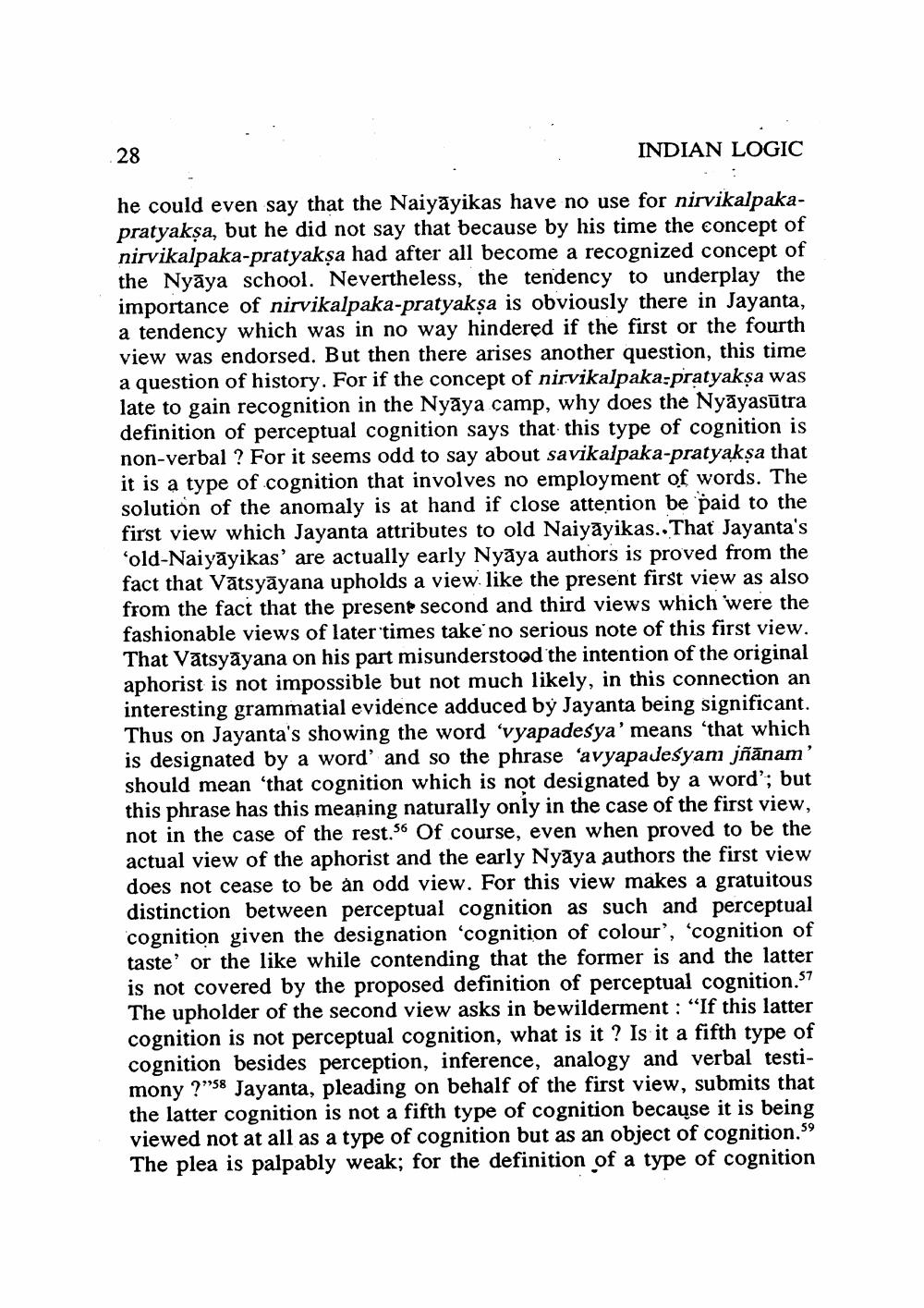________________
28
INDIAN LOGIC
he could even say that the Naiyāyikas have no use for nirvikalpakapratyakşa, but he did not say that because by his time the concept of nirvikalpaka-pratyakşa had after all become a recognized concept of the Nyāya school. Nevertheless, the tendency to underplay the importance of nirvikalpaka-pratyaksa is obviously there in Jayanta, a tendency which was in no way hindered if the first or the fourth view was endorsed. But then there arises another question, this time a question of history. For if the concept of nirvikalpaka-pratyaksa was late to gain recognition in the Nyāya camp, why does the Nyāyasūtra definition of perceptual cognition says that this type of cognition is non-verbal ? For it seems odd to say about savikalpaka-pratyakṣa that it is a type of cognition that involves no employment of words. The solution of the anomaly is at hand if close attention be paid to the first view which Jayanta attributes to old Naiyāyikas.. That Jayanta's fold-Naiyāyikas' are actually early Nyāya authors is proved from the fact that Vātsyāyana upholds a view. like the present first view as also from the fact that the present second and third views which were the fashionable views of later times take no serious note of this first view. That Vätsyāyana on his part misunderstood the intention of the original aphorist is not impossible but not much likely, in this connection an interesting grammatial evidence adduced by Jayanta being significant. Thus on Jayanta's showing the word 'vyapadesya' means that which is designated by a word and so the phrase 'avyapadesyam jñānam' should mean that cognition which is not designated by a word'; but this phrase has this meaning naturally only in the case of the first view, not in the case of the rest. Of course, even when proved to be the actual view of the aphorist and the early Nyāya authors the first view does not cease to be an odd view. For this view makes a gratuitous distinction between perceptual cognition as such and perceptual cognition given the designation 'cognition of colour', 'cognition of taste' or the like while contending that the former is and the latter is not covered by the proposed definition of perceptual cognition.57 The upholder of the second view asks in bewilderment: "If this latter cognition is not perceptual cognition, what is it? Is it a fifth type of cognition besides perception, inference, analogy and verbal testimony ?"58 Jayanta, pleading on behalf of the first view, submits that the latter cognition is not a fifth type of cognition because it is being viewed not at all as a type of cognition but as an object of cognition.59 The plea is palpably weak; for the definition of a type of cognition




